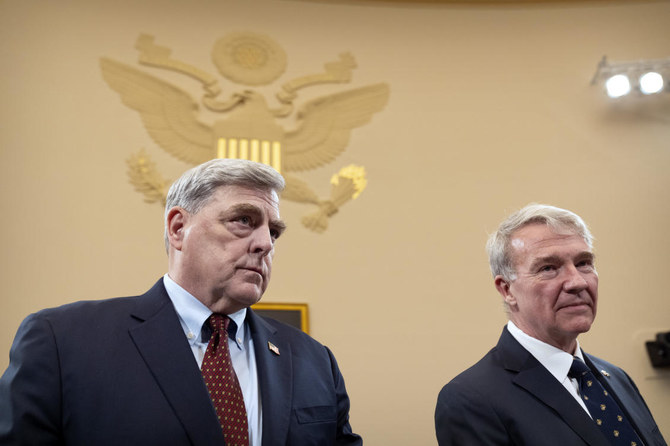
The Biden presidency’s present state of health can best be explained by two very old Washington rules of thumb. First, a president’s overall approval rating functions as his thermometer, precisely measuring his political fortunes. A White House with an approval rating above 60 percent can largely do as it pleases legislatively, while one below 40 percent can be safely ignored by Congress.
The second adage is that all major bills go through a near-death experience, even if they are eventually enacted. The question always remains: Can the president use his political skill and popularity to overcome the inevitable congressional logjams?
As to the first truism, the Biden White House finds itself losing popularity by the day. As to the second, both of President Joe Biden’s two massive domestic spending bills, if a final vote were held today, would not pass. It is not too much to say that the coming critical weeks amount to the legislative moment of truth for the entirety of the Biden presidency.
In August, the Senate passed the president’s $1.2 trillion infrastructure bill on a bipartisan basis, with 19 Republicans joining Democrats in supporting the measure. The bill provides significant funding for both traditional infrastructure, such as roads and bridges, as well as money for more charging stations for electric cars, trains and electric buses, updating the national power grid, and improving broadband access, particularly in rural areas. For one brief, fleeting moment, Biden looked to be a legislative wizard, bridging the partisan divide as no president has done since the glory days of Bill Clinton.
But Biden had not reckoned on the increasingly acrimonious divides within his own party. Under pressure from restive progressives in her own House caucus, Democratic Speaker of the House Nancy Pelosi is loath to pass the bipartisan bill until the Senate Democrats passed Biden’s even larger $3.5 trillion spending bill, which amounts to a liberal wish list spanning a generation. This bill includes money for paid family leave, universal pre-kindergarten, free community college tuition, fresh public investment in green tech, and a significant expansion of Medicaid. The legislation’s costs are only partially offset with increased taxes on the well-off and corporations. Given that no Republican in the country supports this social democratic wish list — the brainchild of leftist Sen. Bernie Sanders of Vermont — the Democrats in the Senate can only pass the larger bill if every single one of the 50 Democratic Senators votes for it.
At present, that simply is not going to happen. Sen. Joe Manchin of West Virginia, the most moderate Democrat in the upper chamber, has come out firmly against the wish-list bill. Writing in The Wall Street Journal, Manchin forthrightly said: “I, for one, won’t support a $3.5 trillion bill, or anywhere near that level of additional spending, without greater clarity about why Congress chooses to ignore the serious effects inflation and debt have on existing programs.” Manchin went on, fearing that passing such a mammoth stimulus would fatally unleash the monster of inflation upon America, saying: “An overheating economy has imposed a costly ‘inflation tax’ on every middle and working-class American.” Nor is Manchin alone; fellow Democratic moderate Kyrsten Sinema of Arizona has also flatly said she cannot justify the headline price tag of $3.5 trillion in new spending to her constituents.
The president has little leverage with the two recalcitrant wings of his party just when he desperately needs it.
John C. Hulsman
Pivotally, President Biden’s quickly declining popularity does not give him the leverage to cajole these “no” votes through placing political pressure upon them. This week’s RealClearPolitics average found Biden’s approval numbers underwater, with 46 percent approving of the job he is doing, while fully 49 percent disapprove. This poll of polls amounts to a lagging indicator — the five most recent polls measuring the president’s approval find that, on average, he is 5 percent underwater. Given America’s immigration crisis, inner-city crime crisis, the heating up of inflation, the endless COVID-19 crisis (with the economy in danger of stalling), and the debacle in extricating the US from Afghanistan, it is highly likely these numbers will get worse before they get better.
So the president has little leverage with the two recalcitrant wings of his party just when he desperately needs it. As it stands, the House Progressives won’t pass the Senate-approved bipartisan bill without the wish-list bill also passing the Senate, where the Senate Democrats do not have the votes to do so. Something has got to give, and soon, or Biden’s ambitious legislative agenda will go up in smoke, the victim of a Democratic ideological civil war.
John C. Hulsman is the president and managing partner of John C. Hulsman Enterprises, a prominent global political risk consulting firm. He is also a senior columnist for City AM, the newspaper of the City of London. He can be contacted via johnhulsman.substack.com.
Disclaimer: Views expressed by writers in this section are their own and do not necessarily reflect Arab News" point-of-view












